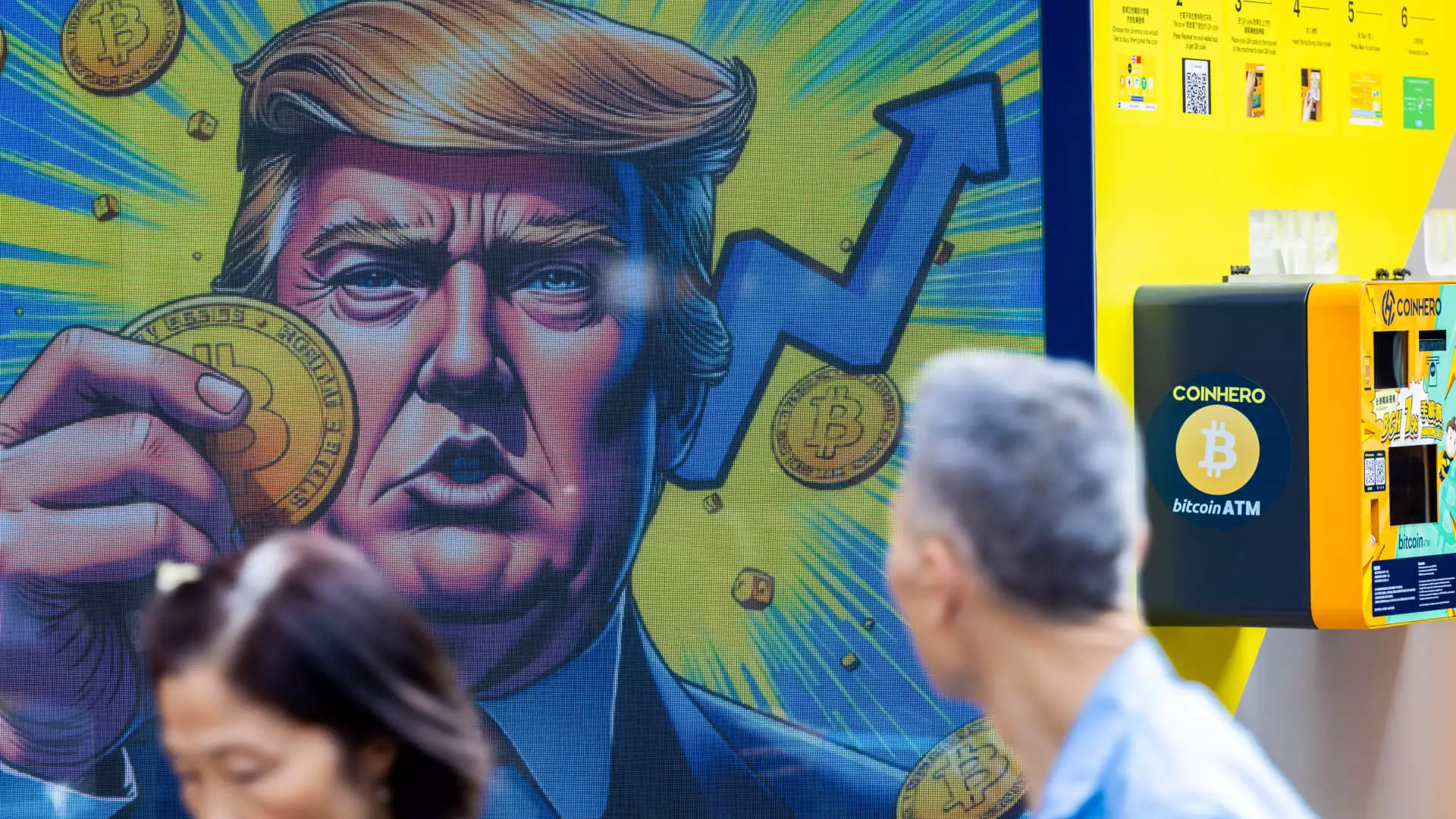In a world increasingly dominated by digital trends, the recent surge of the $TRUMP cryptocurrency has brought to the forefront not only significant economic questions but also profound ethical concerns regarding the intersection of politics and finance. Launched in January, the $TRUMP token has recorded astronomical trading fees—nearly $900,000 in just two days—providing support to the assertion that political figures can capitalize on their influence through emerging digital assets. Such developments spark an urgent discussion about where the line should be drawn between innovative financial practices and potential ethical pitfalls.
The driving force behind this controversy involves a rather theatrical incentive: a dinner invitation with former President Donald Trump for the top 220 holders of the $TRUMP token. The announcement turned heads, not solely for its audacity but for what it suggests about using presidential status for financial gain. Critics are voicing concerns about this dinner being a blatant “pay-to-play” scheme, where financial investment can translate into exclusive access to the former president. This event is not just about a meal; it embodies a deeper issue of how political capital can be leveraged to create economic advantages.
The Mechanics of $TRUMP and Memecoin Popularity
Memecoins like $TRUMP rise and fall based on social media discussions and cultural relevance rather than intrinsic value or product offerings. The $TRUMP token, for instance, accounts for a staggering $2.7 billion in market value, yet lacks any utility, raising questions about sustainability. It is critical to contemplate how this speculative nature encourages risky investments under the guise of digital novelty.
Moreover, the majority of $TRUMP tokens are held by insiders, primarily connected to Trump himself and his enterprises, fueling claims of insider trading. Chainalysis determined that $324.5 million in trading fees have been generated since launch predominantly benefiting those affiliated with the project. Herein lies a significant concern: not only does this setup allow a select few to profit from the cryptocurrency boom, but it simultaneously risks leaving average investors at the mercy of market volatility and potential scams—the phenomenon widely referred to as a “rug pull.”
Ethics at the Crossroads: Political Accountability in a Digital Age
The ethical implications of Trump’s use of cryptocurrency for personal gain are staggering. Critics, including Democratic Senators Adam Schiff and Elizabeth Warren, have called for investigations into the ethics surrounding $TRUMP. They raise the critical question of whether this model represents an ethical breach of public duty or simply a permissible exploitation of existing laws. The director of ethics at the Campaign Legal Center articulated that criminal conflict-of-interest laws do not bind the President as they do for other public figures, which allows Trump significant latitude in leveraging his presidency for financial gain.
This situation poses a challenge to America’s democratic norms. While entrenched systems traditionally require politicians to divest their financial interests upon assuming office, Trump’s financial entanglements—especially with high-stakes cryptocurrency ventures—expose glaring loopholes that can undermine public trust. It effectively validates the idea that access and influence can be bought, a notion as antiquated as it is alarming.
The Cryptocurrency Landscape and Future Perspectives
Emerging political figures are closely observing Trump’s cryptocurrency maneuvering as a potential blueprint for future fundraising strategies. As the legitimacy of cryptocurrencies continues to evolve, blending them with political aspirations could set dangerous precedents. The argument that cryptocurrency operations under Trump are questionable rests not only on a moral foundation but also on the long-term implications these actions could have on regulatory approaches to digital currencies.
The response from mainstream financial regulators and government entities appears muted in the face of these developments, emboldening figures like Trump to navigate this complicated digital terrain with increasingly bold tactics. The potential jeopardy lies in the narrative that emerges around financial opportunity tied to political leverage—framing access as a commodity, blending the digital currency trend with political ambition in ways that could alter the landscape of both sectors.
Overall, the evolving connection between money and power, specifically through platforms like the $TRUMP token, highlights serious implications for ethical governance in an age increasingly defined by technology and innovation. As the conversation progresses, it is crucial to challenge the perceived normalization of such scenarios, questioning not just their legality, but the inherent morality of monetizing political influence and access in the digital currency space.

